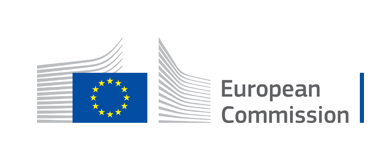European Blockhain Partnership discusses the role EBSI can play in delivering enhanced public services in national recovery and resilience plans
The digitalisation of public administrations is one of seven flagship areas for investments and reform under the €672.5 billion Recovery and Resilience Facility (RRF). At the initiative of the European Blockchain Partnership (EBP) co-chairs, during their quarterly meeting on 27 November, members of the EBP Policy Group discussed how EBSI, and blockchain technology more generally, can contribute to achieving this goal. Materialised as a network of distributed nodes across Europe delivering cross-border public services, EBSI tangibly demonstrates how blockchain technology can enhance the way citizens, governments and businesses interact digitally. To access the RRF, Member States must submit to the European Commission a national Recovery and Resilience Plan (RRP) that allocates at least 20% of its budget to supporting the digital transition.
News from the European Blockchain Observatory and Forum
The European Blockchain Observatory and Forum has published its report on the latest development in the EU Blockchain Ecosystem. This report captures the current state of technological, market and regulatory developments of the 27 EU Member States, the United Kingdom and Switzerland. It is available to download at https://www.eublockchainforum.eu/reports. It is the first in a series of reports that will be published addressing topics selected in accordance with the European Commission priorities.
The findings of this report will be debated in an online workshop organised by the European Blockchain Observatory and Forum in the first quarter of 2021. Subscribe to the European Blockchain Observatory and Forum to stay informed.
EU Blockchain pre-commercial procurement call for tenders launched
The European Commission has launched the call for tenders for the EU blockchain pre-commercial procurement (PCP) to develop new capabilities for EBSI. This supports the development of new capabilities for the future version of EBSI to enable the implementation of various use cases with high volume and velocity requirements whist enhancing the sustainability, security, interoperability and robustness aspects. The aim is to go beyond what existing blockchain solutions can offer. PCP progressively selects the best value for money solutions that the market can develop by awarding R&D service contracts to a number of providers in parallel in a phased approach that covers solution design, prototyping, solution development, installation and testing. PCP thus provides a first customer reference for contractors with innovative solutions. For more information please visit the webpage of the EU Blockchain PCP and Tenders Electronic Daily.
New CHAISE project to prepare a blueprint for sectoral cooperation on blockchain skills development
The CHAISE Erasmus+ skills alliance will develop a 5-semester VET qualification programme in 11 EU languages. In addition to technical skills specific to blockchain, the CHAISE Curriculum will also include non-technical soft skills to respond to the specific needs of modern work environments (problem-solving, team work, and a customer-oriented and entrepreneurial mindset). All learning materials developed by the project will be consolidated into an open online course. CHAISE will also develop the first-ever “blockchain specialist” occupational profile in line with existing competences and qualification frameworks to guarantee a common language for digital skills descriptions.




